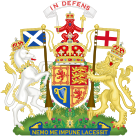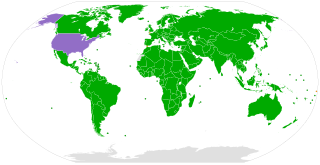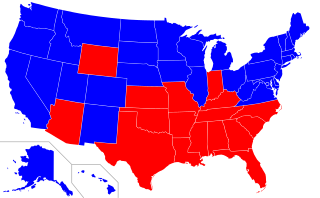 | |
| Introduced by | John Finnie MSP |
|---|---|
Status: Current legislation | |
The Children (Equal Protection from assault) (Scotland) Act 2019 was an Act of the Scottish Parliament that outlaws the use of corporal punishment on children.
 | |
| Introduced by | John Finnie MSP |
|---|---|
Status: Current legislation | |
The Children (Equal Protection from assault) (Scotland) Act 2019 was an Act of the Scottish Parliament that outlaws the use of corporal punishment on children.
Pre the Act's passage all physical attacks on adults could be treated as assault under Scots Law, however, a person accused of assaulting a child could claim the defence of "reasonable chastisement" or "justifiable assault" when they had used physical force as a form of discipline on an individual under the age of 16. The act abolishes this defence, meaning parents and carers could face prosecution for any use of physical punishment on children. [1]
The bill was lodged by the Scottish Green party MSP John Finnie who argued that it would "send a strong message that violence is never acceptable in any setting". The rule change won the support of his party as well as the SNP, Labour and Lib Dems. [1] Outside of politics the act was praised by the Children and Young People's Commissioner for Scotland and various children's charities. [2]
The bill was opposed by the Conservatives with higher education spokesperson in the Scottish Parliament, Oliver Mundell arguing that “These concerns about criminalisation have been dismissed throughout the passage of this bill but the truth is no one here can guarantee how this bill will be implemented and interpreted by the police, prosecutors or our courts.” [2]
The ban was passed by the Scottish Parliament on 3 October 2019 and came into force on 7 November 2020. [1] [3] At the time of its introduction, Scotland was the only part of the UK to have entirely outlawed all use of corporal punishment on minors [4] but a similar law came into force in Wales in 2022. [5]

An assault is the illegal act of causing physical harm or unwanted physical contact to another person, or, in some legal definitions, the threat or attempt to do so. It is both a crime and a tort and, therefore, may result in criminal prosecution, civil liability, or both. Additionally, assault is a criminal act in which a person intentionally causes fear of physical harm or offensive contact to another person. Assault can be committed with or without a weapon and can range from physical violence to threats of violence. Assault is frequently referred to as an attempt to commit battery, which is the deliberate use of physical force against another person. The deliberate inflicting of fear, apprehension, or terror is another definition of assault that can be found in several legal systems. Depending on the severity of the offense, assault may result in a fine, imprisonment, or even death.

The United Nations Convention on the Rights of the Child is an international human rights treaty which sets out the civil, political, economic, social, health and cultural rights of children. The convention defines a child as any human being under the age of eighteen, unless the age of majority is attained earlier under national legislation.

Spanking is a form of corporal punishment involving the act of striking, with either the palm of the hand or an implement, the buttocks of a person to cause physical pain. The term spanking broadly encompasses the use of either the hand or implement, the use of implements can also refer to the administration of more specific types of corporal punishment such as caning, paddling and slippering.

A corporal punishment or a physical punishment is a punishment which is intended to cause physical pain to a person. When it is inflicted on minors, especially in home and school settings, its methods may include spanking or paddling. When it is inflicted on adults, it may be inflicted on prisoners and slaves.

Caning is a form of corporal punishment consisting of a number of hits with a single cane usually made of rattan, generally applied to the offender's bare or clothed buttocks or hands. Caning on the knuckles or shoulders is much less common. Caning can also be applied to the soles of the feet. The size and flexibility of the cane and the mode of application, as well as the number of the strokes, vary greatly—from a couple of light strokes with a small cane across the seat of a junior schoolboy's trousers, to up to 24 very hard, wounding cuts on the bare buttocks with a large, heavy, soaked rattan as a judicial punishment in some Southeast Asian countries.
Chastisement is the infliction of corporal punishment as defined by law.

The rights of lesbian, gay, bisexual, and transgender (LGBT) people in the United Kingdom of Great Britain and Northern Ireland have varied over time. Today, LGB rights are considered to be advanced by international standards. However, the country has developed an increasingly negative reputation regarding the status of transgender rights.

The Welsh Not was a token used by teachers at some schools in Wales in the 19th century and early 20th century to discourage children from speaking Welsh at school, by marking out those who were heard speaking the language. Accounts suggest that its form and the nature of its use could vary from place to place, but the most common form was a piece of wood suspended on a string that was put around the child's neck. Terms used historically include Welsh not, Welsh note, Welsh lump, Welsh stick, cwstom, Welsh Mark, and Welsh Ticket.

Slippering is a term for the act of smacking the buttocks, or the hands, with a slipper or a slide as a form of corporal punishment. A slippering on the buttocks is a form of spanking; it is a much more common method than slippering on the hands. The verb "to slipper" means "to give a slippering". Slipperings are particularly associated with Britain and Commonwealth countries, although not exclusively so.

The Crimes Amendment Act 2007 is an amendment to New Zealand's Crimes Act 1961 which removed the legal defence of "reasonable force" for parents prosecuted for assault on their children.

Lesbian, gay, bisexual, transgender (LGBT) rights in Scotland are generally in line with the rest of the United Kingdom, which have evolved extensively over time and are now regarded as some of the most progressive in Europe. In both 2015 and 2016, Scotland was recognised as the "best country in Europe for LGBTI legal equality".

School corporal punishment is the deliberate infliction of physical pain as a response to undesired behavior by students. The term corporal punishment derives from the Latin word for the "body", corpus. In schools it may involve striking the student on the buttocks or on the palms of their hands with an implement such as a rattan cane, wooden paddle, slipper, leather strap or wooden yardstick. Less commonly, it could also include spanking or smacking the student with an open hand, especially at the kindergarten, primary school, or other more junior levels.

The Crimes Act 1961 is an act of New Zealand Parliament that forms a leading part of the criminal law in New Zealand. It repeals the Crimes Act 1908, itself a successor of the Criminal Code Act 1893. Most crimes in New Zealand are created by the Crimes Act, but some are created elsewhere. All common law offences are abolished by section 9, as are all offences against acts of the British Parliaments, but section 20 saves the old common law defences where they are not specifically altered.

Physical or corporal punishment by a parent or other legal guardian is any act causing deliberate physical pain or discomfort to a minor child in response to some undesired behavior. It typically takes the form of spanking or slapping the child with an open hand or striking with an implement such as a belt, slipper, cane, hairbrush or paddle, whip, hanger, and can also include shaking, pinching, forced ingestion of substances, or forcing children to stay in uncomfortable positions.

Campaigns against corporal punishment aim to reduce or eliminate corporal punishment of minors by instigating legal and cultural changes in the areas where such punishments are practiced. Such campaigns date mostly from the late 20th century, although occasional voices in opposition to corporal punishment existed from ancient times through to the modern era.

Corporal punishment, sometimes referred to as "physical punishment" or "physical discipline", has been defined as the use of physical force, no matter how light, to cause deliberate bodily pain or discomfort in response to some undesired behavior. In schools in the United States, corporal punishment takes the form of a school teacher or administrator striking a student's buttocks with a wooden paddle.
In England and formerly in Wales, battery punishment by parents of their minor children is lawful by tradition and explicitly under common law by R v Hopley [1860] 2F&F 202 :
By the law of England, a parent ... may for the purpose of correcting what is evil in the child inflict moderate and reasonable corporal punishment, always, however, with this condition, that it is moderate and reasonable.
The legality of corporal punishment of children varies by country. Corporal punishment of minor children by parents or adult guardians, which is intended to cause physical pain, has been traditionally legal in nearly all countries unless explicitly outlawed. According to a 2014 estimate by Human Rights Watch, "Ninety percent of the world's children live in countries where corporal punishment and other physical violence against children is still legal". Many countries' laws provide for a defence of "reasonable chastisement" against charges of assault and other crimes for parents using corporal punishment. This defence is ultimately derived from English law. As of 2023, only three of seven G7 members including seven of the 20 G20 member states have banned the use of corporal punishment against children.

The Children (Wales) Act 2020 is an Act of the National Assembly for Wales that was given royal assent on 20 March 2020. It was introduced to the Assembly in March 2019 by Julie Morgan AM and passed on the 28 January 2020. It was first detailed in February 2019 by way of an Explanatory Memorandum.
The school strikes of 1911 were a series of mass walkouts of schoolchildren in the United Kingdom, protesting against corporal punishment and poor conditions in schools. Originating in Llanelli, in Wales, at least 62 towns across the UK saw school strikes in September 1911.